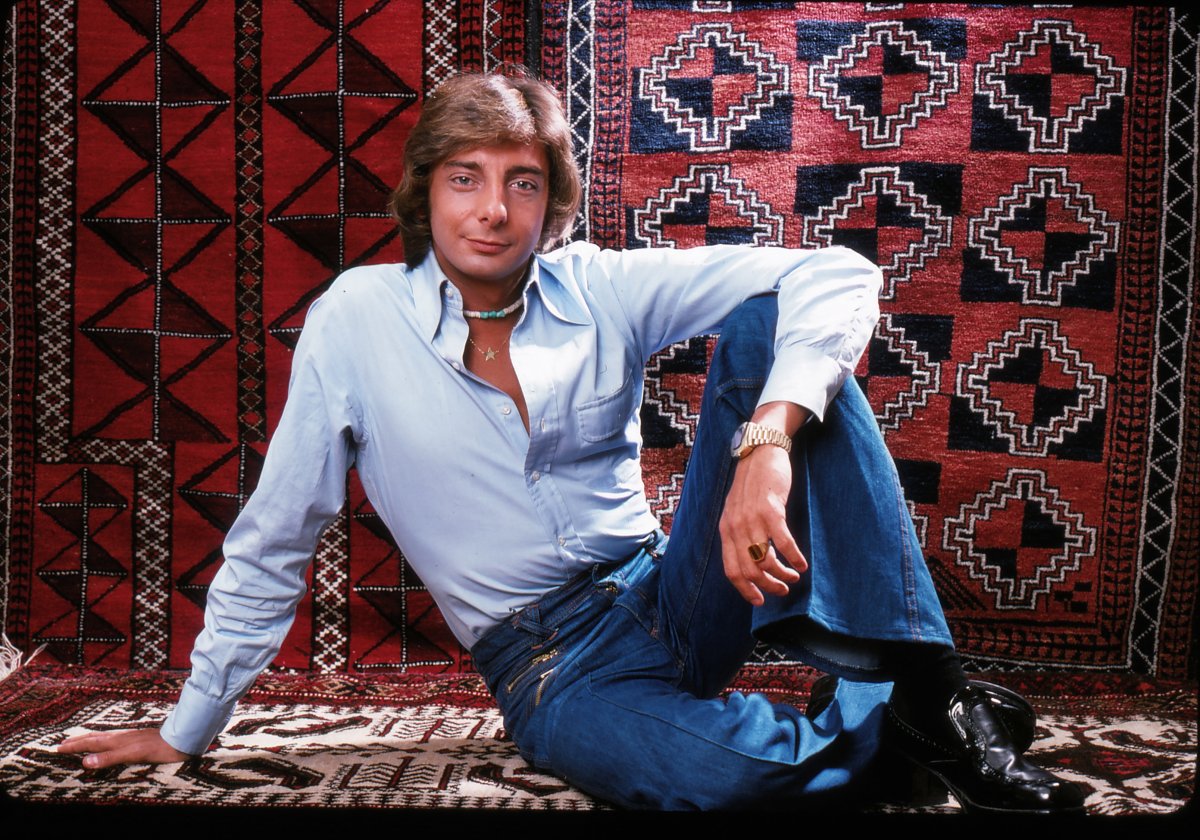
During a guest appearance on HBO’s Who’s Talking to Chris Wallace, the 80-year-old Copacabana singer said he didn’t think it was important to announce his sexuality during the earlier decades of his career.
Manilow came out in 2017, almost three years after he married his husband and manager Garry Kief in a private ceremony. The couple have been together for 45 years now, though they’ve kept much of their relationship away from the public eye.
When he came out to People magazine in 2017, Manilow — whose real name is Barry Pincus — worried he’d be “disappointing” some of his fans by revealing his sexuality. Instead, Manilow, who was 73 at the time, said the reaction from his fanbase was “beautiful.”

Despite his current feelings of nonchalance about his own coming out, Manilow said announcing his sexuality as his career was booming would have been a bad idea.
“Now being gay is no big deal,” he explained. “Back in the ’70s it would have killed a career.”
Regardless, the usually very private Manilow said he thinks “everybody knew that Garry and I were a couple all those years.”
“Really, Garry and I’ve been together for so long,” he said. “It just never dawned on me that we’re going to come out. But when we got married, it was a big deal, so we did.”
Manilow credited Kief for saving his life. He said he is thankful he had Kief to support him as his music career was taking off, despite keeping their relationship under wraps.
“As my career exploded, it was just crazy. And, you know, going back to an empty hotel room, you can get into a lot of trouble if you’re alone night after night after night,” Manilow explained. “But I met Garry right around when it was exploding. And I didn’t have to go back to those empty hotel rooms. I had somebody to cry with or to celebrate with.”
Manilow said he did not wish an isolated hotel room for any young people.
“It was pretty lonely until I met Garry. And then it was fun,” he smiled.
Kief is not Manilow’s first spouse. In 1964, Manilow married his high school sweetheart, Susan Deixler. They were married for one year.
Manilow told CNN’s Wallace he “really did love” Deixler, but added “the gay thing was pretty, pretty strong. I couldn’t deny it.”
The singer said he knew he was gay before marrying Deixler, but their marriage ended because Manilow couldn’t be the committed husband his then-wife needed. He revealed that his sexuality was not the reason his marriage failed.
“We had a very nice marriage, it was great, but I was away every night making music, as a young musician would be,” Manilow described. “It wasn’t good for me, and it wasn’t good for her.”
“I couldn’t be the proper husband,” he continued. “I was out making music every night, sowing my wild oats. I wasn’t ready to settle down.”
Brooklyn-born Manilow skyrocketed to international fame in 1974 after his release of the ever-popular pop-rock ballad Mandy. He became one of the biggest-selling musicians of all time. Prior to his success as a singer-songwriter, Manilow was behind a number of famous commercial jingles for brands like State Farm and Band-Aid — a gig that he has said helped him create catchy hooks for his own hit songs.

Our thoughts and prayers go out to Jennifer Garner for her tragic loss

Jennifer Garner has had a successful career in Hollywood, but she has also stayed close to her parents.
The actress wrote on social media on Monday that her dad had died. He was 85 years old.
William John Garner was Jennifer Gardner’s dad. Who was he?
KBTX News 3 says that William John “Billy” Garner went to Texas A&M University and got his Bachelor of Chemical Engineering in 1961 and his Master of Chemical Engineering in 1976.
Stephen Garner was the dad of Jennifer Garner, Susannah Kay Garner Carpenter, and Melissa Garner Wylie.
Pat Garner, their mother, was his wife for almost 60 years.Jennifer wrote a blog post on January 1, 2024, to celebrate her parents’ 59th wedding anniversary.
“Happy 59th wedding anniversary to my loving and sweet parents!” “Thank you, Mom and Dad, for making sure my sisters and I had a safe and happy childhood,” she wrote.
She was born in Texas and grew up in Charleston, West Virginia.
The Hindustan Times says that William worked for Union Carbide as a chemical engineer.
What killed William John Garner?
“My dad died in peace on Saturday afternoon.” When he left, we were with him and sang “Amazing Grace.” Did we carry him across or scare him away? That’s a good question. “The death of an 85-year-old man who lived a healthy, happy life is not a tragedy, but I know that grief is inevitable and can come up at any time,” she wrote.
“Today is a day to be thankful,” she said.
“We are thankful for Dad’s kind nature and quiet strength.” For the way he teased with a sly grin and made up the part of the all-in, always-patient girl dad. He has a strong work ethic, is a good leader, and has faith.
But Jennifer did say that William was treated at Charleston Area Medical Center and City of Hope. She did not say what killed William.
“We want to thank the medical staff at Charleston Area Medical Center and City of Hope.” Your care made Dad’s life longer and gave him more time to do the things he loved, like being with his daughters and grandchildren, cheering for his beloved Aggies, being in charge of a boat, and most of all, being next to our mom, his wife of 59 years.
My sisters and I will never get tired of talking about how great my dad was, so please bear with us. For now, I’m sharing these memories to show how grateful I am for the kind and smart man, father, and grandfather he was, as well as the loving legacy he left behind.
Patricia Ann Garner is Jennifer Garner’s mom. Who is she?
Southern Living talked to Patricia about her family history. She grew up on a farm near Locust Grove, Oklahoma.
Harvey Newton English and Violet Margaret Sayre English bought the farm in 1936, during the Great Depression. Patricia was born in 1938, two years after her mum and dad moved there.



Leave a Reply